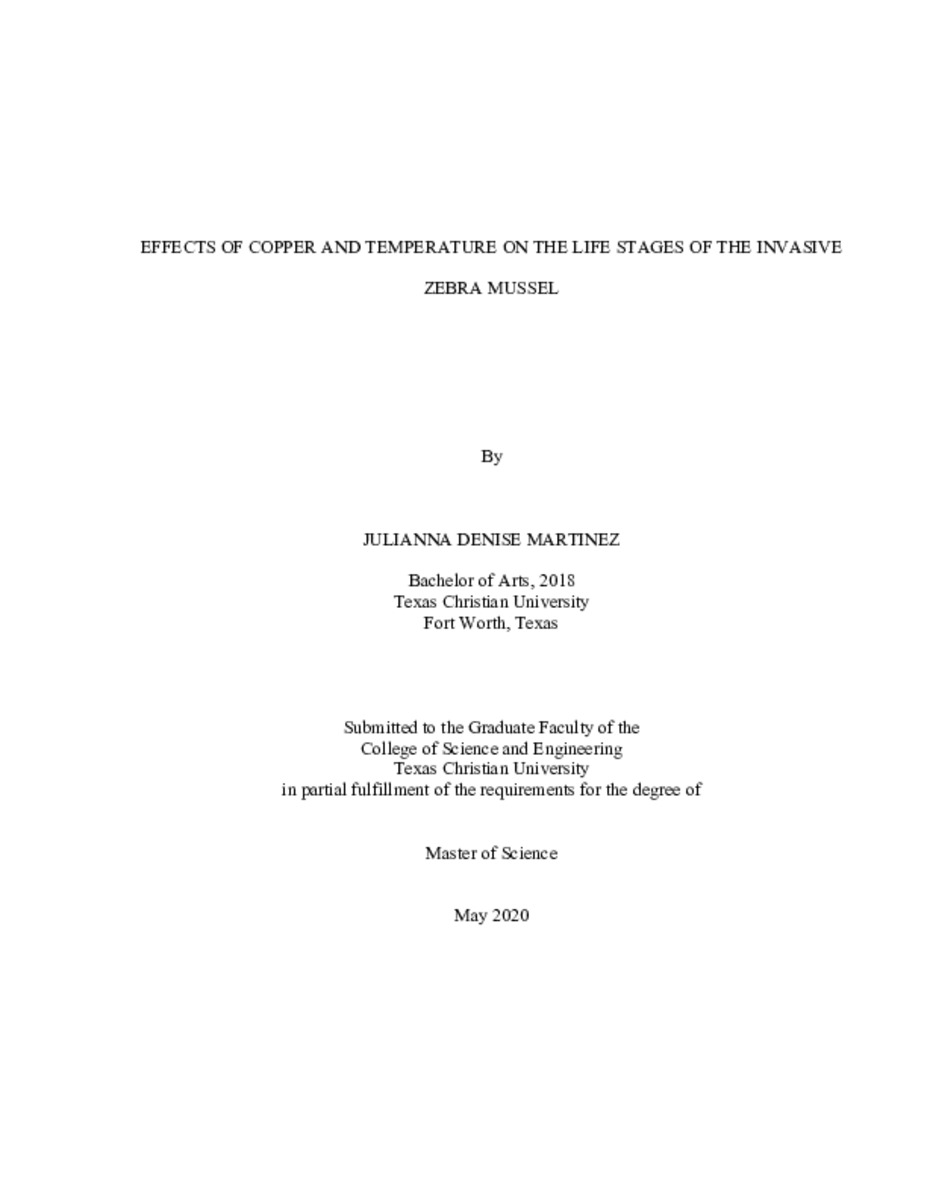Effects of Copper and Temperature on the Life Stages of the Invasive Zebra MusselShow full item record
| Title | Effects of Copper and Temperature on the Life Stages of the Invasive Zebra Mussel |
|---|---|
| Author | Martinez, Julianna Denise |
| Date | 2020 |
| Genre | Thesis |
| Degree | Master of Science |
| Abstract | Dreissena polymorpha, zebra mussels, are an invasive species of freshwater bivalves that have recently spread into bodies of water across North America via the Great Lakes. Zebra mussels are mainly spread throughout the United States by their free-swimming larvae called veligers that are moved from waterbody to waterbody by human boat traffic, attributing to the success of their invasive spread. Once an adult zebra mussel population is established, they proliferate quickly and cause many problems to the ecosystem and cause damage to boating and water treatment equipment by tightly attaching to many hard surfaces. Zebra mussels have recently entered many Texas waterways, indicating that they have possibly adapted to conditions outside of originally expected for a cold-water species that are not representative of the Great Lakes region. The focus of this study was to look at various environmental factors which may affect zebra mussel survival and reproduction including temperature and the effects of a copper- based molluscicide, EarthTec QZ, as a potential mechanism of control. Zebra mussel survival and reproductive success were examined in various experiments to gain an overall understanding of the effects at all zebra mussel life stages. |
| Link | https://repository.tcu.edu/handle/116099117/39860 |
| Department | Biology |
| Advisor | Misamore, Mike |
Files in this item
This item appears in the following Collection(s)
- Masters Theses [4182]
© TCU Library 2015 | Contact Special Collections |
HTML Sitemap



